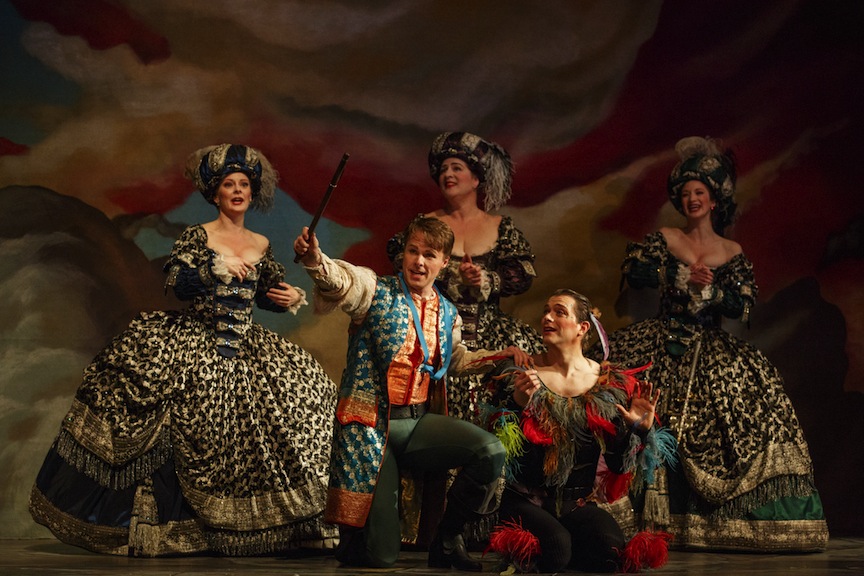
The Magic Flute by Mozart is such a silly piece of musical theatre that Opera Atelier has found success not by wrestling some modern sense into this 18th century fable, but by completely giving in to its silliness and creating some fresh magic in the process.
Opening night of Opera Atelier’s second and last production of the season at the Elgin Theatre on Saturday was an unqualified success. It’s well worth catching one of the five remaining performances (the last one is on April 13) to share some of the fun, which is part pantomime, part pop-up storybook.
It starts with the cast, all of whom can sing as well as use their acting talents to animate co-artistic director Marshall Pynkoski’s very physical comedy.
Opera Atelier has been tinkering with this production for more than 20 years, and many of the current cast members have shared their fine chemistry before, including tenor Colin Ainsowrth as the earnest Prince, baritone Olivier Laquerre as Papageno and soprano Carla Huhtanen as Papagena (as well as one of the Three Ladies).
Great additions this time included soprano Laura Albino as a strong-yet-honey-voiced Pamina, bass Joao Fernandes as Sarastro and gynmastically-endowed tenor Aaron Ferguson as Monostatos.
Ambur Braid brought the house down with her Queen of the Night’s Aria.
Conductor David Fallis led a sleek, rhythmically vibrant reading of the score with the help of the Tafelmusik Orchestra.
Opera Atelier co-artistic director Jeannette Lajeunesse-Zyngg was even able to choreograph a couple of excellent dance scenes over the course of the three hour performance.
What really helped everything come together was Andrew Porter’s English translation of the play as well as all the sung bits. Unlike many translations, this one manages to sound idiomatic, fit the music perfectly and convey every detail of Emanuel Schikaneder’s original libretto.
It’s been 222 years since this opera first saw footlights in Vienna. The story of darkness and superstition being cleared away by the light of reason is odd and, in the way it treats women, awfully dated.
But Mozart’s music is timeless and Pynkoski’s kinetic staging entertaining enough to keep even some children who were sitting near me giggling through much of the action. And Gerard Gauci’s trope l’oeil sets and the richly colourful costumes keep the eyes engaged.
To have it so well sung is icing on a tasty cake.
You can find all the details about this production here.
John Terauds